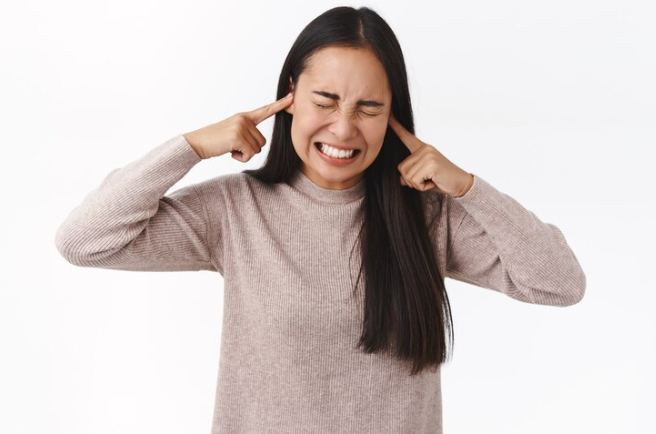foto: freepik.com
Brilio.net - In the digital age, music has become an important part of everyday life, especially for young people who never fail to listen to music via headphones. But behind the pleasure offered by music , there is a phenomenon that needs to be taken seriously. The habit of listening to music excessively, especially before bed, can have a serious impact on hearing.
Research shows that exposure to high volumes and loud noises, especially over long periods of time, can cause hearing damage. The term deafness due to noise or noise induced hearing loss describes the negative impact that may occur due to repeated exposure to loud noises. Unfortunately, many young people may not realize that listening to music continuously can harm their hearing in the future.
As experienced by Wang, a young woman from Shandong, China, who recently visited a health facility to undergo a hearing examination. This is caused by his habit of always listening to music through headphones every night before bed. The woman who served as a secretary at a local company told the doctor about her habits.
"When I was in college, I liked to fall asleep while listening to music. Once I started listening to it, I would sleep with headphones on all night. This has become a habit, and I've been doing this for about two years," Wang told his doctor, quoted by brilio .net , Wednesday (13/3).

photo: odditycentral.com
Li Tao, director of the ENT Department at the hospital, told Chinese newspaper The Paper that Wang's hearing loss was most likely caused by his habit of listening to music every night. Even if the volume of music listened to is not excessive, long-term exposure of the ears to noise eventually causes permanent hearing damage.
Luckily for Wang, only his left ear was affected by the constant noise and the damage was minor enough that the loss of hearing function could be compensated for with hearing aids. Wang's incident recently became a highlight and went viral in China. This event also serves as a warning to the current generation to know the limits of listening to music.
So through this incident the doctors recommended three "rules of 60" to avoid similar problems. First, don't be exposed to sounds over 60 decibels for too long. Second, limit using headphones or listening to loud music for more than 60 minutes. Third, when using electronic devices that play sound, make sure the volume is below 60 percent.
Please remember, apart from disturbing your hearing, listening to music using headphones or earphones while sleeping also has quite terrible dangers and can have a fatal impact on your hearing. Brilio.net reported from emc.id on Wednesday (13/3), here are several health reasons that using headphones or earphones is not recommended while sleeping.
1. Accumulation of earwax.

photo: freepik.com
Using headphones all night or for a long time can encourage earwax to go deeper, which ultimately causes buildup. This accumulation of earwax often produces an uncomfortable and disturbing sensation when doing activities. This situation can result in decreased hearing sensitivity and even trigger conditions such as tinnitus, which is characterized by ringing in the ears.
2. Causes ear infections.

photo: freepik.com
Using headphones for too long and continuously can increase the risk of ear infections that cause pain. Moreover, prolonged use of headphones can trigger the spread of bacteria in the ears, which is triggered by increased humidity and dirt buildup. This can worsen existing ear infections.
3. The appearance of hearing loss.

photo: freepik.com
A frequent complaint is the impact of using earphones for a long period of time. Most earphones emit sound between 95 and 108 dB, which exceeds the sound safety limit accepted by the human ear, which is around 85 dB. The impact is nerve damage to the ear and decreased hearing sensitivity due to exposure to sound volumes that are too high and last for a long time. This can result in hearing loss.
4. Causes brain damage.

photo: freepik.com
When sleeping, the body will rest, but the brain is still active. Unfortunately, sleeping while listening to music can disrupt brain rest. If ignored, electromagnetic exposure from headsets can damage brain cells. So it is necessary to avoid using headphones continuously to avoid damage to the brain which could be fatal.
5. The appearance of necrosis.

photo: freepik.com
Necrosis is a condition where cells are injured because the blood supply to the tissue is disrupted. Using earphones that don't fit properly while sleeping can cause necrosis due to changes in ear position. Over time, continued use of earphones can cause narrowing of the ear canal, making it difficult for blood to flow. As a result, the tissue in the ear can die or experience necrosis, characterized by the appearance of dark sores.
With advances in technology that make music easier to access, it is important to remember the importance of maintaining balance. Enjoying music is everyone's right, but maintaining healthy hearing is also your own responsibility. With awareness and the right precautions, you can ensure that future generations can still enjoy the beauty of music without having to sacrifice hearing health.
(brl/jad)